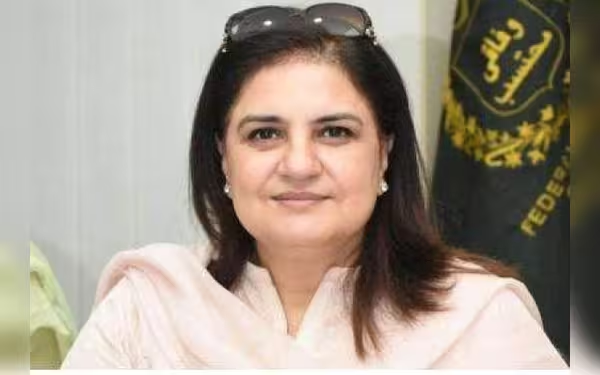Saturday, November 16, 2024 08:30 PM
BISP and Sindh Education Minister Collaborate on Skill Development Initiatives
- BISP focuses on empowering families through skill development.
- Senator Khalid emphasizes technical education for BISP beneficiaries.
- Collaboration aims to create a skilled workforce in Sindh.
 Image Credits: urdupoint
Image Credits: urdupointBISP and Sindh Education Minister discuss initiatives to enhance skill development for beneficiaries, aiming for economic stability and self-sufficiency.
The Benazir Income Support Programme (BISP) plays a crucial role in providing financial assistance to underprivileged families in Pakistan. However, the program is not just about giving money; it aims to empower families to become self-sufficient. Recently, a significant meeting took place between Senator Rubina Khalid, the Chairperson of BISP, and Syed Sardar Ali Shah, the Sindh Education and Literacy Minister. This meeting focused on enhancing skill development initiatives for BISP beneficiaries, which is a vital step towards achieving economic stability for these families.
During the meeting, which was held in Karachi, both leaders discussed various strategies to improve the skill sets of BISP beneficiaries. One of the key points of discussion was the allocation of campsites in schools during BISP’s quarterly payment disbursements. This initiative aims to ensure that beneficiaries can access not only financial support but also educational resources that can help them develop technical skills.
Senator Rubina Khalid emphasized the importance of technical and vocational education, stating, "We aim to focus more on the technical education of children from BISP-registered families." This statement highlights BISP's commitment to going beyond mere financial assistance. The program is actively working on initiatives that provide technical training, enabling families to break the cycle of poverty and achieve self-reliance.
Syed Sardar Ali Shah praised the efforts of BISP and acknowledged the dedication of Senator Khalid. He reiterated the vision of Shaheed Benazir Bhutto, which emphasizes economic stability and self-sufficiency for women in Pakistan. The minister pointed out that many children are unable to complete their education due to family obligations. He stated, "By imparting both education and technical skills, we can empower our youth to achieve economic stability." This perspective underscores the need for a holistic approach to education that includes both academic and practical skills.
Both parties agreed to develop an action plan aimed at enhancing technical education in Sindh. They also decided to prepare a working paper that outlines final recommendations for implementing these initiatives. This collaborative effort is a promising step towards creating a more skilled workforce in the province.
In addition to the meeting, Senator Rubina Khalid visited the Government Higher Secondary School in Shireen Jinnah Colony. During her visit, she encouraged students to explore diverse fields and contribute to the nation’s progress. This visit served as a reminder that education is not just about textbooks; it is about inspiring the next generation to dream big and work hard.
The collaboration between BISP and the Sindh Education Department marks a significant step towards empowering families through education and skill development. By focusing on technical training, these initiatives aim to provide beneficiaries with the tools they need to achieve economic independence. As Pakistan continues to face challenges related to poverty and education, such efforts are essential in paving the way for a brighter future for all.













